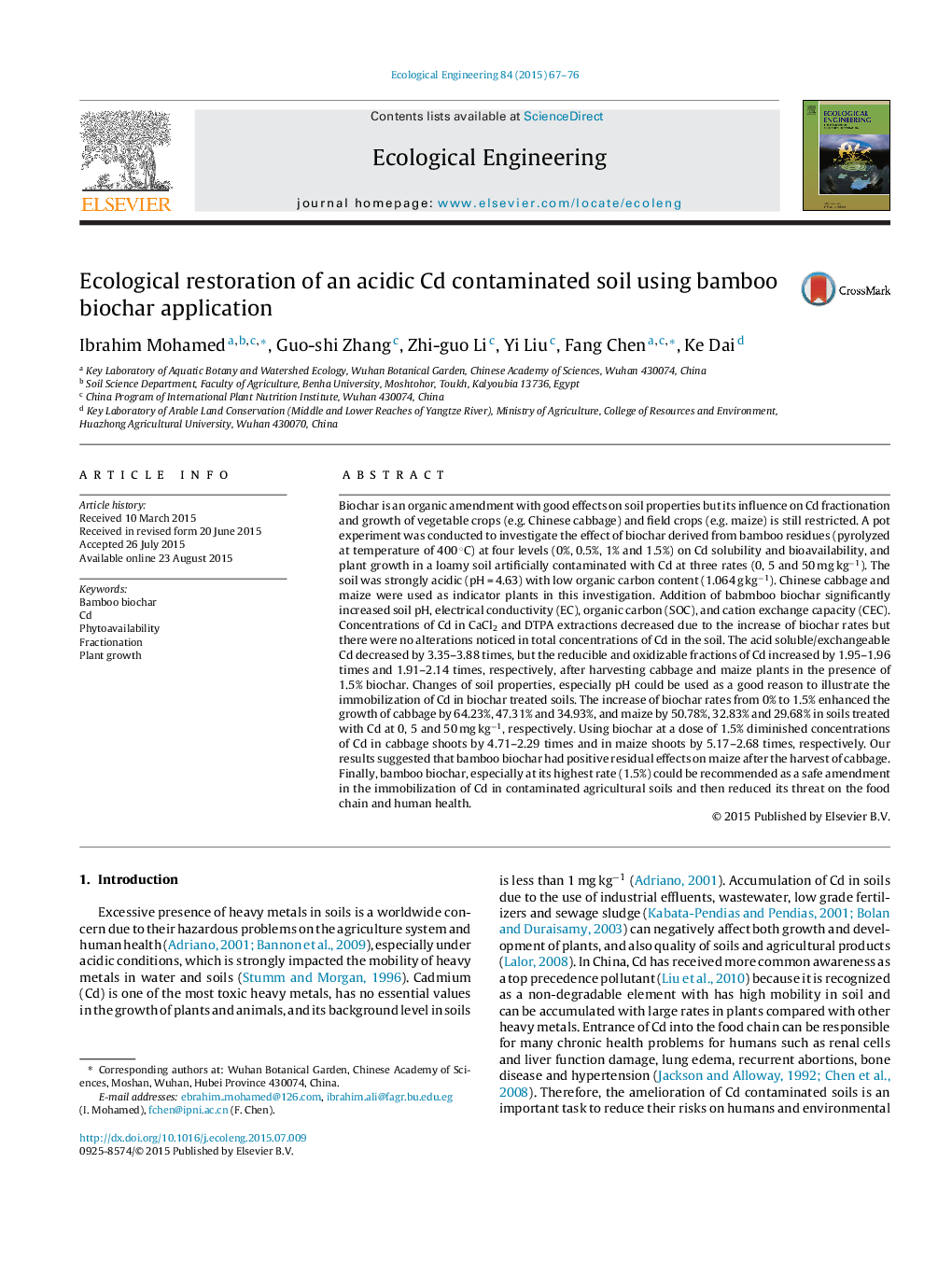| Article ID | Journal | Published Year | Pages | File Type |
|---|---|---|---|---|
| 4388768 | Ecological Engineering | 2015 | 10 Pages |
•Bamboo biochar markedly succeed to improve soil properties.•Biochar significantly decreased the availability of Cd in acid soils.•Biochar enhanced the growth of cabbage and maize plants.•Accumulation of Cd strongly decreased in 1.5% biochar treated soil.•Biochar had an important role in eco-restoration of Cd polluted soils.
Biochar is an organic amendment with good effects on soil properties but its influence on Cd fractionation and growth of vegetable crops (e.g. Chinese cabbage) and field crops (e.g. maize) is still restricted. A pot experiment was conducted to investigate the effect of biochar derived from bamboo residues (pyrolyzed at temperature of 400 °C) at four levels (0%, 0.5%, 1% and 1.5%) on Cd solubility and bioavailability, and plant growth in a loamy soil artificially contaminated with Cd at three rates (0, 5 and 50 mg kg−1). The soil was strongly acidic (pH = 4.63) with low organic carbon content (1.064 g kg−1). Chinese cabbage and maize were used as indicator plants in this investigation. Addition of babmboo biochar significantly increased soil pH, electrical conductivity (EC), organic carbon (SOC), and cation exchange capacity (CEC). Concentrations of Cd in CaCl2 and DTPA extractions decreased due to the increase of biochar rates but there were no alterations noticed in total concentrations of Cd in the soil. The acid soluble/exchangeable Cd decreased by 3.35–3.88 times, but the reducible and oxidizable fractions of Cd increased by 1.95–1.96 times and 1.91–2.14 times, respectively, after harvesting cabbage and maize plants in the presence of 1.5% biochar. Changes of soil properties, especially pH could be used as a good reason to illustrate the immobilization of Cd in biochar treated soils. The increase of biochar rates from 0% to 1.5% enhanced the growth of cabbage by 64.23%, 47.31% and 34.93%, and maize by 50.78%, 32.83% and 29.68% in soils treated with Cd at 0, 5 and 50 mg kg−1, respectively. Using biochar at a dose of 1.5% diminished concentrations of Cd in cabbage shoots by 4.71–2.29 times and in maize shoots by 5.17–2.68 times, respectively. Our results suggested that bamboo biochar had positive residual effects on maize after the harvest of cabbage. Finally, bamboo biochar, especially at its highest rate (1.5%) could be recommended as a safe amendment in the immobilization of Cd in contaminated agricultural soils and then reduced its threat on the food chain and human health.
